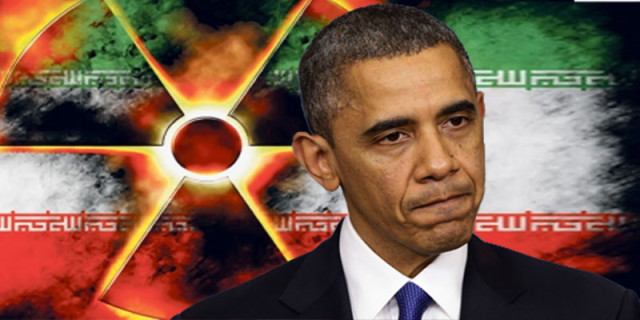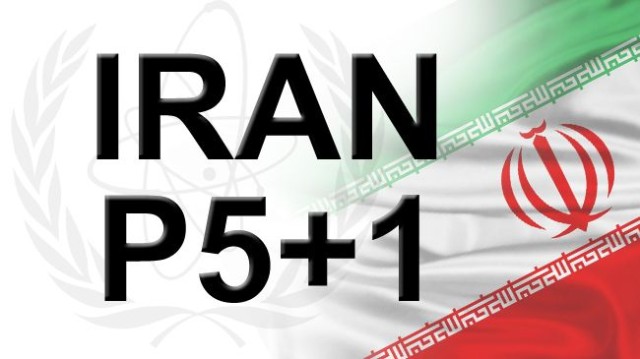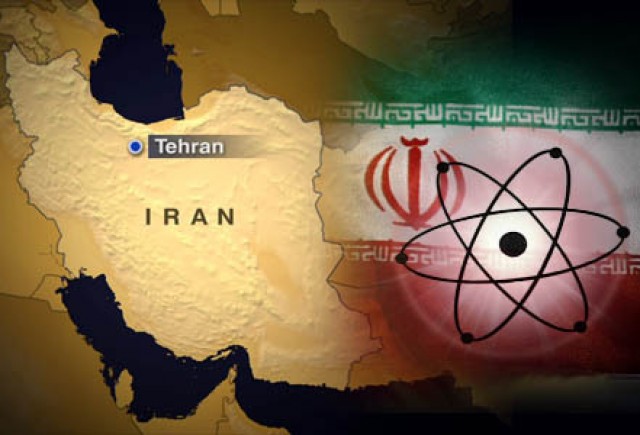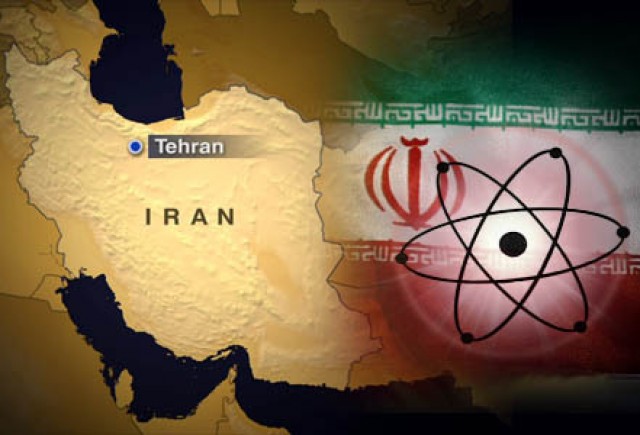Obama Threatens to Veto the Nuclear Weapons Free Iran Act
Like many Americans and Israelis I watched expectantly President Obama’s State of the Union Address (SOTUS) before a joint session of Congress crammed into the House Chamber. I was looking for a reaction from the Congressional audience on the issue of the P5+1 agreement implemented on January 20th. Iran’s President Rouhani had basically told the P5+1 in a CNN interview at the World Economic Forum in Davos, Switzerland that the Islamic regime was not going to dismantle their nuclear program. Instead they were going to plough ahead with research and development on advanced centrifuges and would not swap the Arak heavy water plant that would produce plutonium for a bomb.
In light of these jarring comments made in Davos, Switzerland by President Rouhani at the World Economic Forum, you would have prudently thought that the President would have changed his mind about vetoing the Nuclear Weapons Free Iran Act (NWFIA), S. 1881. Obama made it clear that he was proceeding with the P5+1 deal as a diplomatic way of avoiding military action to disable the Islamic Regime’s nuclear weapons capability. A capability that according to Israeli PM Netanyahu speaking at the Annual Conference of the Institute for National Security studies at Tel Aviv University (INSS) was “six weeks away from achievement when the P5+1 deal was signed” on November 24, 2013 in Geneva.
President Obama fired a bow shot directed at NWFIA sponsors Sens. Kirk and Menendez, and 57 other co-sponsors of S. 1881, as well as the Resolution introduced in by House Majority Leader Eric Cantor (R-VA) and Minority Leader Steny Hoyer (D-Md.) supporting its passage.
Obama said:
Let me be clear if this Congress sends me a new sanctions bill now that threatens to derail these talks, I will veto it.
For the sake of our national security, we must give diplomacy a chance to succeed.
If Iran’s leaders do not seize this opportunity, then I will be the first to call for more sanctions, and stand ready to exercise all options to make sure Iran does not build a nuclear weapon. But if Iran’s leaders do seize the chance, then Iran could take an important step to rejoin the community of nations, and we will have resolved one of the leading security challenges of our time without the risks of war.
It is American diplomacy, backed by pressure, that has halted the progress of Iran’s nuclear program – and rolled parts of that program back – for the very first time in a decade. As we gather here tonight, Iran has begun to eliminate its stockpile of higher levels of enriched uranium. It is not installing advanced centrifuges. Unprecedented inspections help the world verify, every day, that Iran is not building a bomb.
If John F. Kennedy and Ronald Reagan could negotiate with the Soviet Union then surely a strong and confident America can negotiate with less powerful adversaries today.
Watch this C-SPAN video clip of the nuclear Iran segment of his SOTUS:
The immediate reaction was clearly stony silence from the Republican members of both chambers in the audience.
According to a Jerusalem Post, article on the President’s veto threat, NWFIA co-sponsor Sen. Kirk said:
“The American people – Democrats and Republicans alike – overwhelmingly want Iran held accountable during any negotiations. While the president promises to veto any new Iran sanctions legislation, the Iranians have already vetoed any dismantlement of their nuclear infrastructure,” Kirk added, calling his bill an “insurance policy” for Congress.
The Hill Global Affairs blog reported the dissembling the morning after the President’s SOTUS remarks on a nuclear Iran by some Democratic co-sponsors of NWFIA in the wake of the President’s public veto threat. Note these Senators’ comments:
Sen. Joe Manchin (D-W.Va.) said on MSNBC Tuesday night that he didn’t endorse the bill so that it could be voted on during negotiations with Iran. “Give peace a chance,” he said.
“I did not sign it with the intention that it would ever be voted upon or used upon while we were negotiating,” Manchin said. “I signed it because I wanted to make sure the president had a hammer, if he needed it and showed them how determined we were to do it and use it, if we had to.”
[…]
“Now is not the time for a vote on the Iran sanctions bill,” Coons said Wednesday at a Politico event, according to The Huffington Post.
The senator clarified that he still supports the bill but warned advancing it now could damage ongoing negotiations toward a final agreement with Iran.
[…]
“I’m not frustrated,” Menendez told The Huffington Post on Tuesday after Obama’s address. “The president has every right to do what he wants.”
The Hill Global Affairs blog noted the Senate reaction to NWFIA :
Sens. Dick Durbin (D-Ill.), the second-highest ranking Democrat, Patty Murray (D-Wash.), the fourth-highest ranking Democrat, and Elizabeth Warren (D-Mass.) have said they are against the bill.
Senate Majority Leader Harry Reid (D-Nev.) has also suggested he’s leaning toward not allowing a vote on it.
On Wednesday, Sen. Marco Rubio (R-Fla.) said the Senate should move the sanctions bill forward to the floor, predicting it would have a veto-proof majority.
Meanwhile, Reuters reported on Monday that lawmakers in both the House and Senate are considering a nonbinding resolution that expresses concern about Iran’s nuclear program.
Backing what Sen. Kirk said in his response to the President was further evidence from former UN nuclear weapons inspector David Albright at the Washington, DC Institute for Science and International Security (ISIS). Both he and the sanctions analysis team from the Foundation for Defense of Democracies held a well attended briefing for Capitol Hill Staffers on Monday, January 27th. Albright was quoted in the Los Angeles Times citing an ISIS report on the technical aspects of the accord implemented on January 20th that allows Iran to continue research over the next six months on several types of advanced centrifuges already at Natanz:
[The accord] is not expected to seriously affect Iran’s centrifuge research and development program. Albright said he hopes to persuade the six powers to push for much stricter limits on centrifuge research and development when they negotiate the final agreement. The issue has to be addressed much more aggressively.
Cliff May of FDD, co-sponsor of the Capitol Hill event with Albright of ISIS, observed in an NRO Corner article:
If Iran’s rulers faithfully comply with every commitment they have so far made, at the end of this six-month period, they will be about three months — instead of two months — away from breakout capacity.
Yesterday, at the annual conference of the Institute for National Security studies (INSS) at Tel Aviv University, there was a dialog between former CIA Director Gen. David Petreaus and Maj. Gen. Amos Yadlin, former IDF military intelligence chief. The contrast between their positions on the Iran nuclear threat was most telling:
General (ret.) David Petraeus: The United States is war weary and suffers from a “Vietnam syndrome.” However, it still has major strategic capabilities, and President Obama will not hesitate to use force against Iran, if necessary.
Major General (ret.) Amos Yadlin: What keeps me awake at night is the Iranian issue. The Iranian nuclear program aspires to attain a nuclear capability. The only viable leverage – sanctions and a credible military threat – are weakening, and this is most worrisome. Also troubling: the status quo on the Palestinian issue is not favorable, and the relations with the United States are not on the same level as before – these must be restored.
If you are a gambler, which of the two former military leaders, would you bet on to make a decision in the sovereign national interests of Israel regarding a nuclear Iran? I know who I would.
EDITORS NOTE: This column originally appeared on The New English Review.




